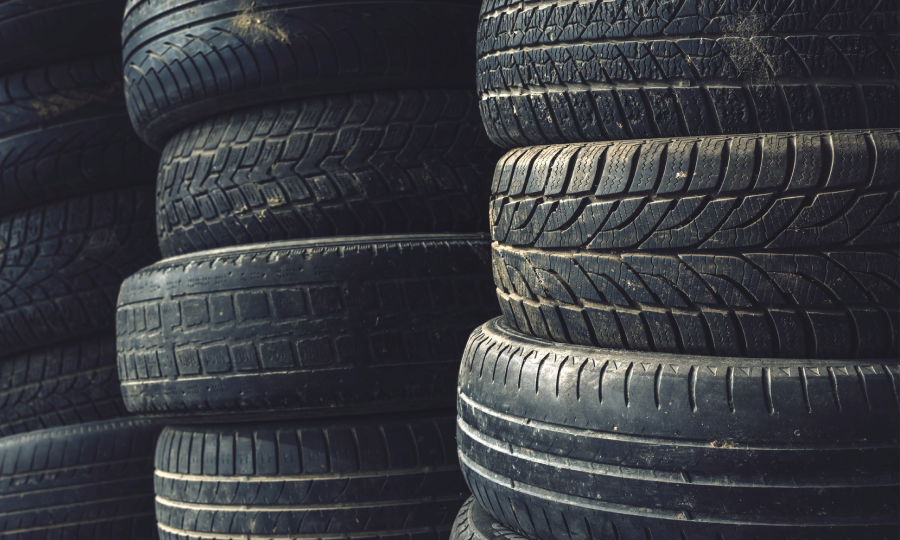
The investigation, commissioned by Point S Tyre & Autocare, reveals official government data showing 3.1 million individual tyre defects caused MOT failures in the 13-month period from July 2023 to July 2024.
Most alarmingly, 2.38 million of these failures were classified as 'dangerous' defects, meaning vehicles posed an immediate risk to road safety.
The data shows over 600,000 vehicles had tyres with exposed plies or cords – a catastrophic failure condition that significantly increases the risk of sudden tyre failure at speed. A further 1.16 million vehicles failed due to insufficient tread depth below the legal minimum of 1.6mm.
The scale becomes even more concerning when considering the 9.03 million vehicles that received tyre-related advisory notices during the same period, warning drivers of developing problems that require attention before becoming dangerous. This suggests millions more drivers are potentially ignoring early warning signs that could prevent future failures.
The findings are supported by independent analysis from charity TyreSafe, whose data shows broadly aligned figures.
Stuart Lovatt, chair of TyreSafe, said the sheer scale of MOT failures highlighted by this investigation was deeply concerning.
"These figures are a stark reflection of widespread neglect and show that millions of vehicles are failing to meet the legal standards already in place. Tyres are the most critical safety feature on any vehicle, and their condition is entirely within the driver's control," Lovatt explained.
"TyreSafe urges every motorist to immediately commit to a simple, frequent check routine to ensure full compliance with the law. We all have a personal responsibility to safeguard every journey and reduce an entirely preventable risk on our roads."
Point S, a leading servicing and tyre management network, said the figures reveal a road safety endemic that demands immediate action.
The network is calling for immediate reform to the way tyre defects are assessed in MOT tests, arguing that the current system's tolerance for tyre defects fundamentally misunderstands the critical safety role tyres play.
"Tyres are the only point of contact between a vehicle and the road – if they are compromised, so is everyone's safety. The MOT should reflect that with zero tolerance for tyre defects," explained Ali Yilmaz, Point S managing director.
The network has also reinforced its position through its decision to completely ban part-worn tyre sales across all member locations, despite "the commercial challenges this presents".
"The Point S network goes a step further – none of our members sell part-worn tyres due to the inherent safety risks. Selling and fitting part-worn parts makes little logical sense – you wouldn't fit part-worn brake pads, so why is it okay to do so for tyres?" said Yilmaz.
Point S also spotlighted the impact of the automotive industry's transition towards electric vehicles, which present additional tyre safety challenges. Industry analysis suggests significant growth in the replacement tyre market owing to the rise in EV sales and their faster tyre wear rates.
The network is urging the DVSA and policymakers to prioritise tyre safety in any forthcoming MOT reform, supporting the implementation of clearer, stricter standards that would make any tyre defect an automatic MOT failure. Point S also highlights the critical need for enhanced public education around tyre maintenance, including proper tread depth, inflation levels and signs of wear.
"Safety shouldn't be a grey area," Yilmaz added. "We welcome dialogue with regulators, but we're clear on one thing – when it comes to tyres, there's no such thing as 'minor'. With more than three million individual tyre defects causing MOT failures, we clearly have a systemic problem that requires urgent attention. Every one of these statistics represents a potential tragedy waiting to happen."
Tagged with: MOT failures, tyre defects, DVSA, tyre tread depth 1.6mm, exposed cords, TyreSafe, Point S Tyre & Autocare, part-worn ban, MOT reform, EV tyre wear
Disclaimer: This content may include forward-looking statements. Views expressed are not verified or endorsed by Tyre News Media.